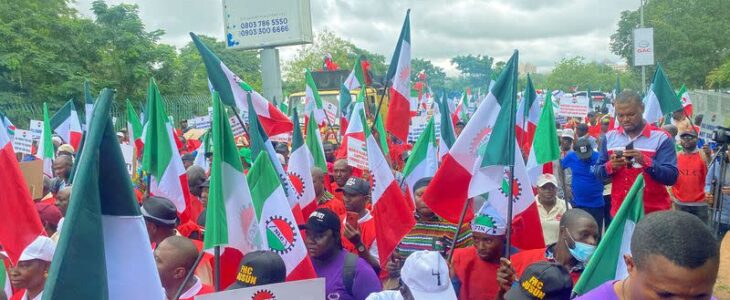
Nigeria’s main labour federation has agreed to return to talks with the government following a meeting with President Bola Tinubu on Wednesday, union leaders said, on a day when hundreds of Nigerians marched against the removal of a petrol subsidy.
The Nigeria Labour Congress (NLC) said the marches across major Nigerian cities were successful enough to force Tinubu to meet union leaders and vow to expedite an agreement on a new minimum wage among other promises.

Tinubu’s spokesman, Dele Alake, said labour movement leaders had agreed to suspend their strike while talks continued, adding the president had promised that a major oil refinery under rehabilitation in southern Nigeria would start processing fuel by December, likely reducing petrol prices.
Wednesday’s strike was the first major test for Tinubu, who scrapped the popular but expensive petrol subsidy, which cost the government $10 billion last year, and lifted curbs on foreign exchange trading.

While Tinubu’s reforms have been welcomed by investors, unions say they have led to soaring costs at a time when Nigerians are already grappling with the highest inflation in nearly two decades.
Led by union leaders, protesters carrying placards marched in Lagos, the oil-producing state of Bayelsa and in the northern cities of Kano and Kaduna.
“On the strength of the President’s pledge and commitment, we have decided for a return to a new and reinvigorated dialogue process to allow for full implementation,” the NLC said in a statement after meeting Tinubu.
In the capital Abuja, marchers broke down a gate to the National Assembly, expecting to be addressed by the Senate president, witnesses said. There were no reports of other incidents.
Union officials handed petitions to government officials in several states detailing their grievances.
While Tinubu has said the fuel subsidy benefited the country’s elites, unions say ending it was a hasty decision made without any plan to cushion the impact on the poor.
Credit: Yahoo News
